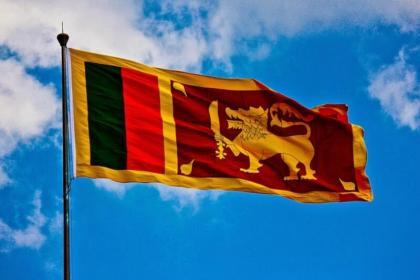
Literature can stoke the feelings that lead to civil war, express what writers think about the conflict, and help heal the wounds of war. When Abraham Lincoln met Harriet Beecher Stowe, he told the author of “Uncle Tom’s Cabin” that she sparked the Civil War. By dramatizing slavery’s horrors, her book moved the conscience of Northerners and energized the cause of abolitionists.
Understanding Sri Lanka’s Civil War through Ethnic Literature
In our time, the literature of Sri Lanka reveals to outsiders the trauma of civil war, and how important it is to heal its wounds to bind a nation afterwards. The protracted civil war in Sri Lanka that lasted almost 25 years until its conclusion in 2009 still haunts its people.
Colleen Lutz Clemens, associate professor of non-Western literatures at Kutztown University, published a blog article recently entitled, “Sri Lankan History and Literature Deserve a Place in Our Classrooms.” Published on October 12, 2016 for “World Literature Today,” her piece explained why literature provides a window into the process of healing a nation through the remembrance of a traumatizing period in history.
The literature and poetry reflecting feelings from both sides of the conflict reveals the different viewpoints of people before the war, during the war, and in its aftermath.
Literature Revealing Rising Tensions
Democracy paved the way for civil war in Sri Lanka when political parties mobilized voters along ethnic lines. Government led by politicians representing the majority-Buddhist Sinhala population introduced policies that discriminated against the (mostly Hindu) Tamils and fueled the tensions.
The first signs of conflict were ethnic riots that sprang up in 1958 after the polarizing Sinhala Only Official Language Bill was approved by Parliament soon after the 1956 general election. This law paved the way for the rise of militancy that culminated in civil war. Writers on either side of the ethnic divide reflected the passions of each faction.
Literature Promoting National Unity
However, among writers from the majority ethnic population were also those who expressed their support for reconciliation and respect for minority rights. During the 1960s and 1970s, the Sri Lanka Progressive Writers’ Association promoted socialism in Tamil literature and expressed support for ethnic integration, national unity, and social equity.
During this period, progressive writers highlighted social issues such as caste oppression, class conflict, and economic exploitation. During the civil war, writers on both sides in favor of unity expressed their feelings through their writing. The post-war literature has revealed what is needed to bring a nation together after a war in which each side viewed the other as its bitter enemy.



